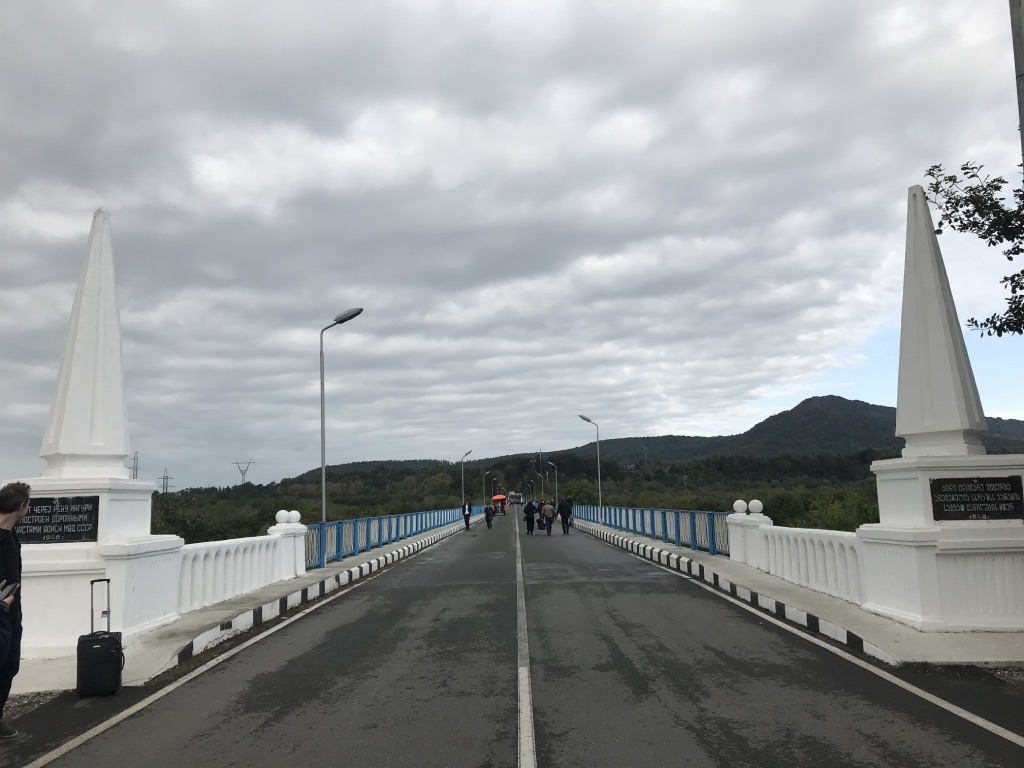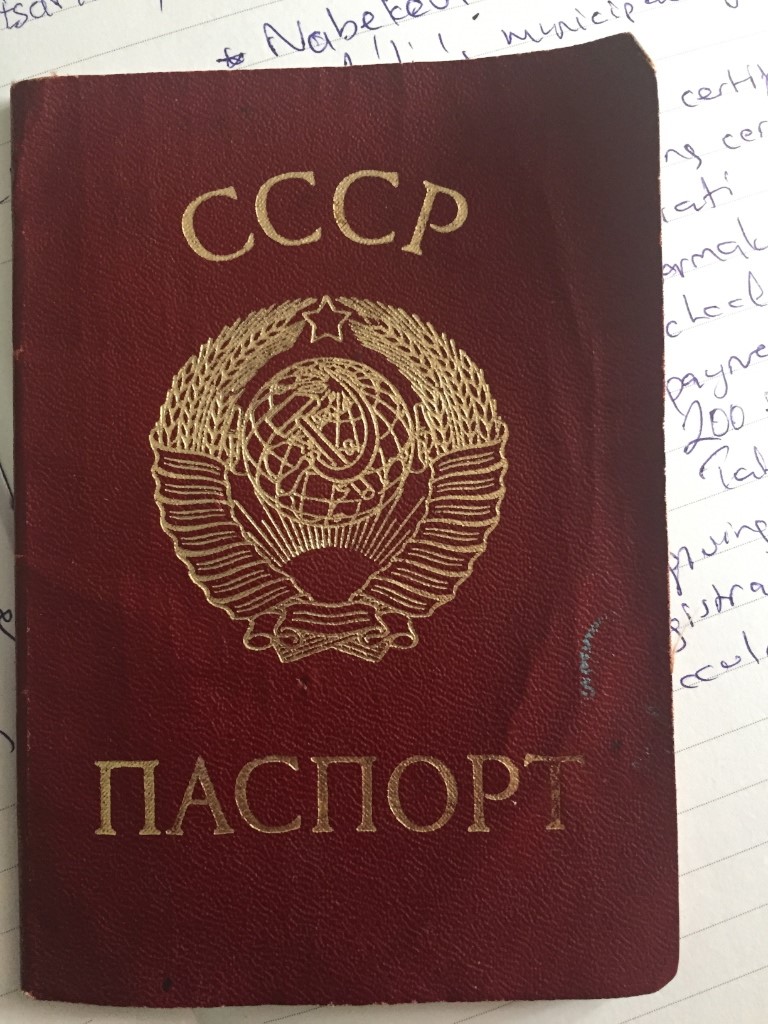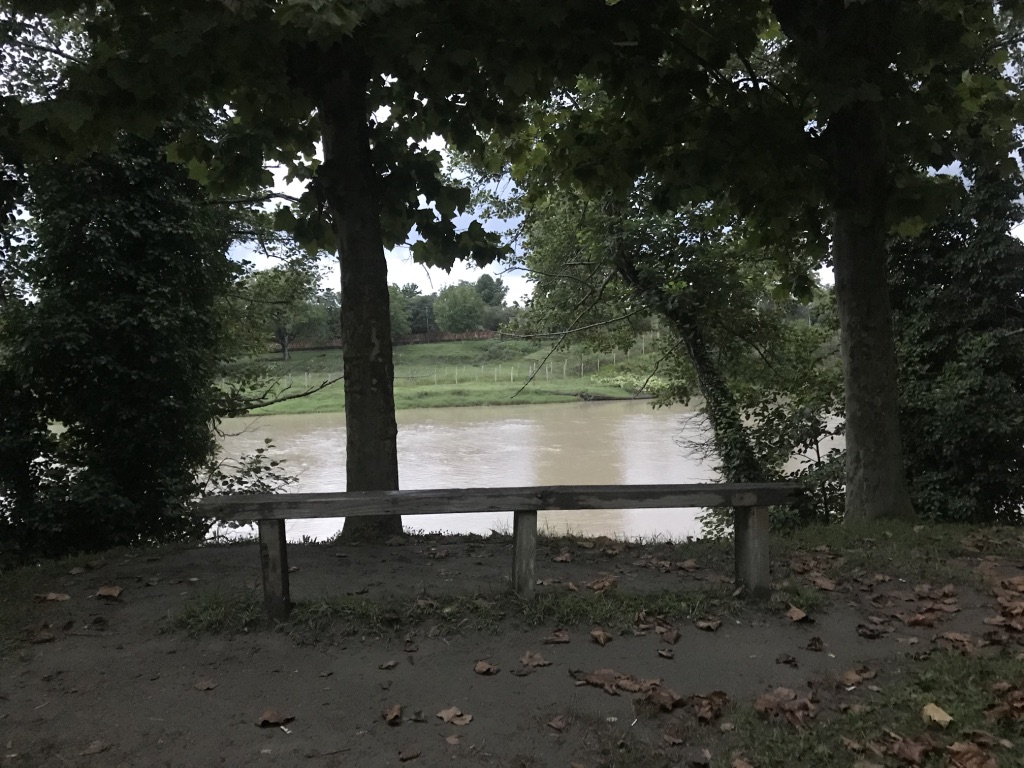Article begins
For people from Gali, the lockdowns and unpredictability brought by COVID-19 are not new. Life in this liminal conflict zone has long been punctuated by border closures and crises.
Since the start of the pandemic, the word “uncertainty” has become ever present in our lives. A convenient if ambivalent term, uncertainty has long been part of anthropological narratives characterizing various situations and contexts, or our “lifestyle” conditioned by precarity and a steady stream of declared crises. The state of uncertainty that Georgians of the Gali district have navigated under a decades-long conflict, however, is distinctive, and since the COVID-19 pandemic, it has been distinctive and urgent in new ways.
Gali is a liminal conflict zone in the southern borderland of the de facto state of Abkhazia. In Soviet times, Abkhazia had been an autonomous republic within Georgia. Following the post-Soviet Georgian-Abkhaz war in 1992–1993, thousands of ethnic Georgians were forced to flee to Georgia proper. Soon after the war’s end, those displaced from Gali started to access their homes separated from the rest of Georgia by an administrative boundary line (ABL) along the Enguri River. And since then, they have maintained their ties with both sides, and constructed lives and homes spread across the divide.

Image description: A bridge stretches into the distance toward hills and foliage. White pillars and a blue and white railing stand on either side of the pavement, and the road is dotted with people walking down it.
Caption: Enguri Bridge, 2017, the central crossing point Georgia and de facto Abkhazia. Görkem Aydemir
People from Gali have lived in a space of protracted uncertainty and ambivalence for almost three decades. The unresolved conflict is less intense than those in some global hot spots, but it is nonetheless consuming and transforms daily life. Opposing sovereignty projects—of Georgia, Abkhazia, and Abkhazia’s patron state Russia—impose themselves on people’s movements and rights through isolation, surveillance, and militarization. Amid the unpredictable opening and closing of checkpoints, and the arbitrary issuing and annulling of documents, Gali people have generated ways to navigate this shifting terrain over the years to sustain lives that are vitally dependent on formal and informal border crossings. Enguri River water levels, the moods of border guards, and indefinite waiting times are unpredictable but can often be managed with the skills and social networks that people have developed.

Image description: A reddish brown passport rests atop lined paper. The cover features a gold emblem and lettering.
Caption: Soviet passport, 2015. Görkem Aydemir
This seemingly constant state of uncertainty is also further intensified by occasional crises that intervene in the fragile order of the everyday. Strained relations between Georgia and Russia or a political protest in Tbilisi may easily agitate the anxious border, cut ties between members of the split families, and isolate them without access to medicine and services for days. Despite their unpredictability, such periods would often take place in certain patterns involving anticipated political actors and tensions. Since 2017, however, successive crises instigated by pests and viruses have introduced an unusual pattern of nonhuman border emergencies that people have to make sense of and struggle with on an everyday basis, sometimes by risking their lives.
First, a massive stinkbug infestation led to a hazelnut crisis in 2017–2018. Not having any known natural enemies outside East Asia, the brown marmorated stinkbug, known as parosana in Georgia, devastated 80 percent of the hazelnuts in western Georgia and Abkhazia, shattering the livelihoods of Gali people as well. The pest’s disastrous impact on the region’s main cash crop also exacerbated a range of political tensions and new uncertainties from border restrictions to Cold War-style conspiracy theories. Gali’s future was more acutely in question than usual. This time, the perpetrator was a bug, neither Abkhaz nor Russian. A Georgian public officer in Zugdidi—a borderland town on the Georgian side—posed a question that captured people’s alarm: “Who will stay in Gali without the hazelnuts? It seems that parosana will soon achieve what they [the Abkhaz or Russians] have been trying to do for years.”

Image description: Someone holds a green hazelnut fruit between their forefinger and thumb. A brown stinkbug rests on the hazelnut fruit.
Caption: Brown marmorated stinkbug, 2018. Görkem Aydemir
As the stinkbug invasion started to retreat in January 2019 (a month before Donald Trump’s fabricated “national emergency” concerning the Mexico–US border), the H1N1 virus, known as the swine flu, provoked a new border crisis for Gali people. When the virus claimed thirteen lives in Georgia, Abkhaz authorities closed the single remaining crossing point on the Enguri Bridge “to ensure the safety of Abkhaz citizens.” In so doing, the livelihoods and needs of Gali residents were ignored with yet another unannounced and indefinite closure. Even though unexpected border restrictions are a constant feature of lives in the borderland, they still catch people unprepared, as achieving the feeling of everyday normalcy is dependent on an assumed mobility.
Lela , a young woman displaced from Gali when she was a child, and her family were among those caught unprepared and separated from each other. Lela was anxious and frustrated about the closure. Part of her family was stuck in Gali, and she did not know how long this would continue. Her biggest concern was the limited supply of medicine. Lacking hospitals and pharmacies, Gali residents are largely dependent on medical services provided by the Georgian state across the border. Lela worried about her children: “What if they get the virus? How am I going to send them medicine?” The border was reopened after a month; and unlike many others, Lela’s family fortunately did not require medicine or medical care. As she quickly resumed her transborder routine, Lela did not yet know that this one-month viral closure would turn out to be a rehearsal for a much more serious one the following year.
Unfamiliar with modes of flu virus transmission during the H1N1 outbreak, many people from Gali posted frustrated, sarcastic comments on public Facebook group pages questioning how border closure could ever stop the spread of an invisible virus. After all, fences, border guards, and patrolling dogs have failed to keep people from crossing the border over the years; there has always been a way to cross the Enguri. “What if the virus takes the chernyi khod ?” (“back entrance” in Russian, referring to unofficial detours) wrote one person, in reply to another’s comment that, “Yes, the virus will cross to Abkhazia via the central route!” (the closed official crossing point). For many Gali people, the closure was simply another excuse for the Abkhaz state to insert its power into their lives in unjustified and inhumane ways; but the virus was an unusual actor in this performance.
When COVID-19 hit the world with quarantines and lockdowns, many people in Gali found the closure of the de facto border expected and justified, possibly for the first time since the war’s end. “Normal” borders were getting closed all over the world, putting millions of people in a Gali-like situation. “The world is turning into a big Gali,” noted Giorgi, a young man from Gali, in July 2020. Having spent most of his life in Gali without documents, he was isolated for months because of COVID-19 but “used to it” for years. “But this time it is harder to know how long it will take and I don’t know for how long people can survive here,” he added.
For the majority of Gali residents, who lack income sources in Gali, the situation has been dire. Cutting ties with Georgia for such a long and indefinite time (as of February 11, Abkhaz authorities have partially opened the border following one year of closure) left hundreds of people in Gali without cash, food, and medicine. It left them in such desperation that they risked their lives by trying to swim across the river to get treatment for medical emergencies or to get their pensions and Internally Displaced Person (IDP) allowances on the Georgian side (like 65-year-old Otar Jobava, who was found dead in the river). Eka, a local activist originally from Gali, said, “In the past, they were running away only from the Abkhaz and Russians on the divide; but now they have to run away from the Georgian soldiers as well because they are chasing after crossers and putting them in quarantine. Neither side cares about Gali people; they are stuck in-between.”

Image description: A wooden bench looks out onto a river through an opening in trees and bushes. The opposite river bank is covered in green grass with trees filling the horizon.
Caption: Gali across the Enguri River from the Georgian side of the de facto border, 2018. Görkem Aydemir
COVID-19 seems to have brought some form of a globally shared feeling of unprecedented uncertainty and isolation to Gali—a sense of common destiny that Gali people rarely feel. However, the grim ways they experience the pandemic and the characteristic invisibility of their situation, even within Georgia and the region, remind them that what they go through is neither fully shared nor completely novel. “There is a humanitarian crisis in Gali, and no one knows about it again,” said Eka, unsatisfied with the recent easing of restrictions that have been unannounced, arbitrary, and partial. Amid the circulating narratives and images of a global crisis, the people of Gali feel themselves yet again alone and invisible in their struggle.
Görkem Aydemir is a PhD candidate in anthropology at George Washington University. Her work focuses on mobility, uncertainty, and long-term conflict in the Republic of Georgia.
Maple Razsa and Carna Brkovic are the section contributing editors for the Society for the Anthropology of Europe.
Cite as: Aydemir, Görkem. 2021. “Uncertainty and Viral Emergencies in the Margins of Georgia.” Anthropology News website, March 24, 2021. DOI: 10.14506/AN.1603

